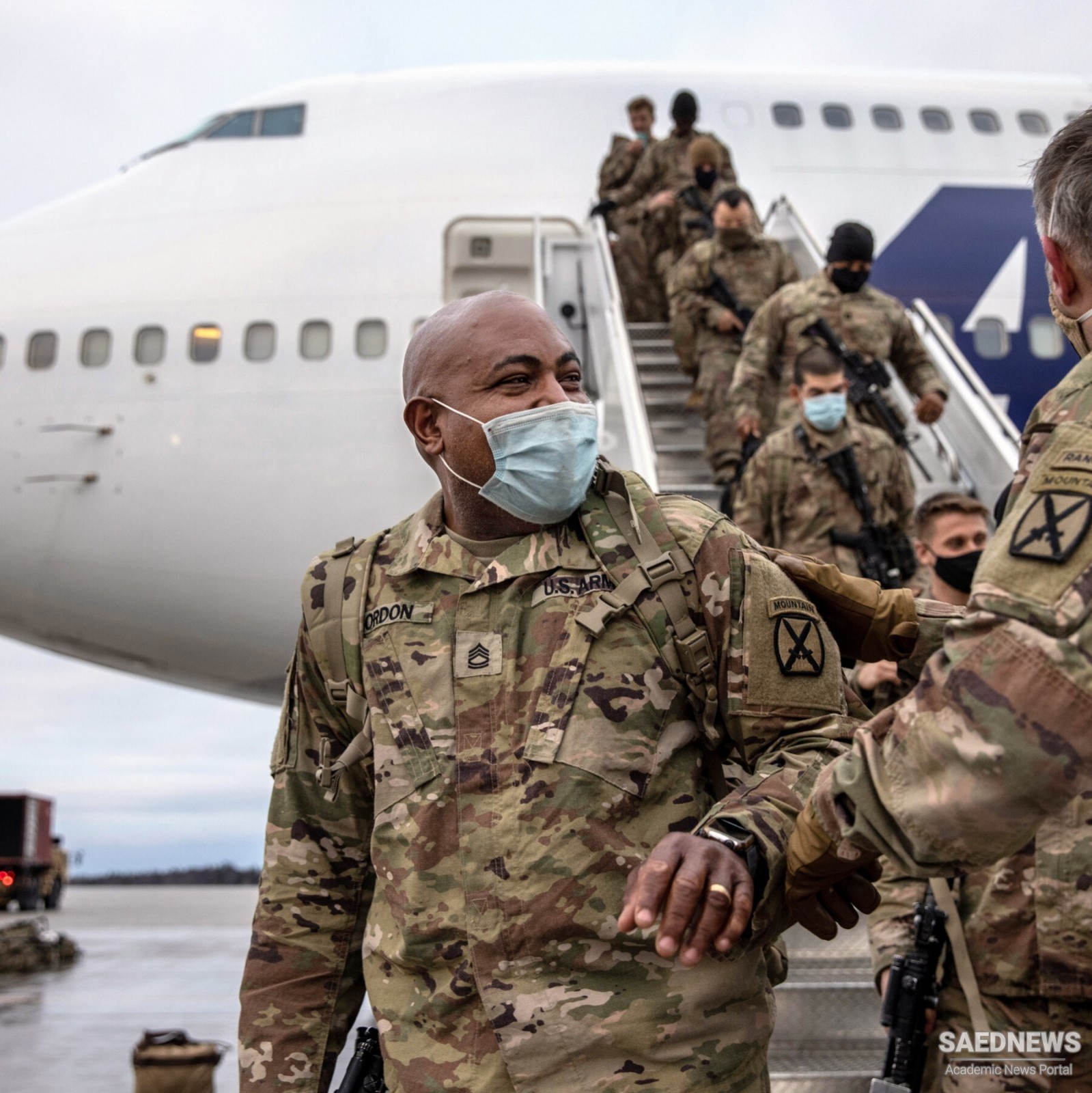Washington, SAEDNEWS: United States President Joe Biden will leave US troops in Afghanistan past the current May 1 deadline but will withdraw them by September 11, US officials said on Tuesday. “After a rigorous policy review, President Biden has decided to draw down the remaining troops in Afghanistan and finally end the US war there after 20 years,” a senior administration official told reporters.
The new withdrawal date is the 20th anniversary of al-Qaeda’s attacks on the United States, which triggered the war in Afghanistan. The Washington Post and New York Times have also reported on Biden’s modified withdrawal date.
Biden, who will lay out his plan during a speech on Wednesday, has been signalling that he would likely miss the May 1 deadline negotiated by the Donald Trump administration and the Taliban as it became clear that withdrawing the remaining 2,500 troops would be difficult and potentially unsafe.
US officials have also blamed the Taliban for failing to live up to commitments to reduce violence and some have warned about persistent Taliban links to al-Qaeda.
In a statement last month, the Taliban threatened to resume hostilities against foreign troops in Afghanistan if they did not meet the May 1 deadline.
But Biden will still set a near-term date for withdrawal, potentially allaying Taliban concerns that he would drag out the process.
The senior Biden administration official stressed that the pullout would not be subject to further conditions.
“The president has judged that a conditions-based approach, which has been the approach of the past two decades, is a recipe in staying in Afghanistan forever,” the official said.
The ultimate withdrawal would be based on certain security and human rights guarantees, sources told the Reuters news agency, speaking on condition of anonymity ahead of the formalisation of the decision.
“The president’s approach and his decision that he made was done through close consultation with military leaders, with his national security team, with partners and allies around the world, and with his objective in mind of ensuring we are focusing on the threats we’re facing, we’re doing that in close coordination with our partners and allies,” White House press secretary Jen Psaki told reporters on Tuesday.
The Taliban declined to comment to Reuters about Biden’s decision, saying the group has not been notified of the US decision.
Meanwhile, officials in Afghanistan are bracing for the withdrawal.
“We will have to survive the impact of it and it should not be considered as Taliban’s victory or takeover,” said a senior Afghan government source, speaking on condition of anonymity.
US Secretary of State Antony Blinken and the US defence secretary, Lloyd Austin, are expected to brief NATO allies on the decision in Brussels on Wednesday.
Omar Samad, a nonresident senior fellow at the Atlantic Council and former Afghan diplomat, told Al Jazeera that it remains unclear how the Taliban leadership as well as the group’s rank-and-file members feel about the reported delay of the US troop withdrawal.
“We don’t have enough details as to what the thinking is both at the leadership level and within the rank and file. But having said this, the Taliban have shown that they are usually unified with their final decisions,” Samad said.
Turkey announced on Tuesday it would host an Afghan meeting from April 24 to May 4 to jumpstart efforts to end the war and put together a possible political settlement.
The United Nations and Qatar are included in the event, and Turkey’s foreign ministry said the Afghan government and the Taliban will attend, but the Taliban said it had not committed to those dates.
On Monday, the Taliban pulled out of an April 16 conference that was to have been held in Istanbul.
There are only about 2,500 US troops in Afghanistan currently, down from a peak of more than 100,000 in 2011. About 2,400 US service members have been killed in the course of the Afghan conflict and many thousands more wounded.
Then-President George W Bush sent American forces into Afghanistan in 2001 to topple its Taliban leaders just weeks after the September 11 attacks. US forces tracked down and killed al-Qaeda leader Osama bin Laden in Pakistan in 2011 during the presidency of Bush’s successor Barack Obama.
With a US-led invasion of Iraq in 2003 ordered by Bush, the American military began a period lasting years of fighting two large wars simultaneously, stretching its capabilities. US troops left Iraq in 2011 under Obama, though some were later deployed under President Donald Trump in response to the threat posed by Islamic State fighters.
Senate Republican Leader Mitch McConnell sharply criticised Biden’s decision, saying on Twitter, “Foreign terrorists will not leave the U.S. alone simply because our politicians have grown tired of taking the fight to them. The President needs to explain to the American people how abandoning our partners and retreating in the face of the Taliban will make America safer.”
 Biden to Put an End to Trump Crooked Policies by His Executive Orders Immediately after Inauguration
Biden to Put an End to Trump Crooked Policies by His Executive Orders Immediately after Inauguration
















































